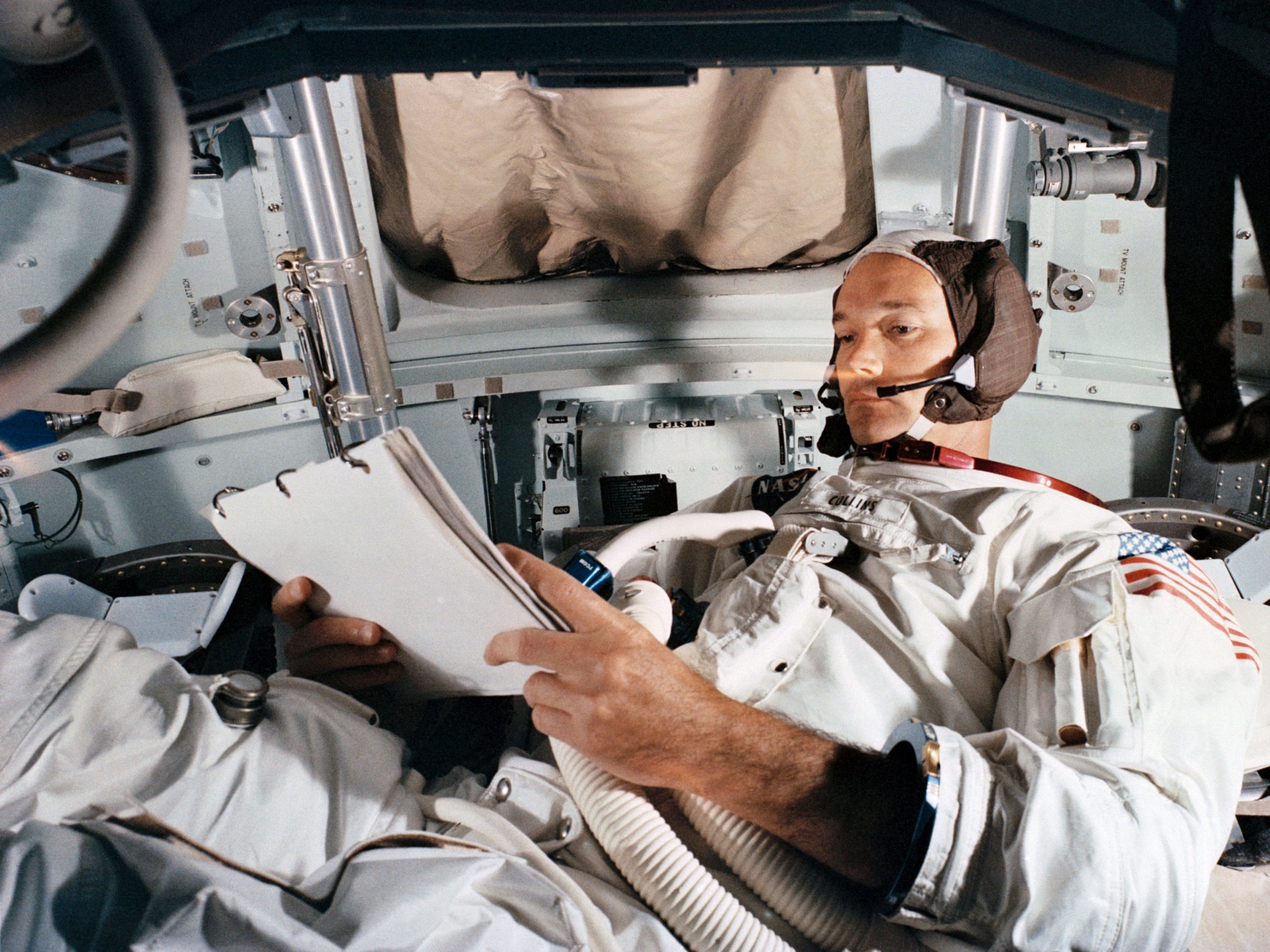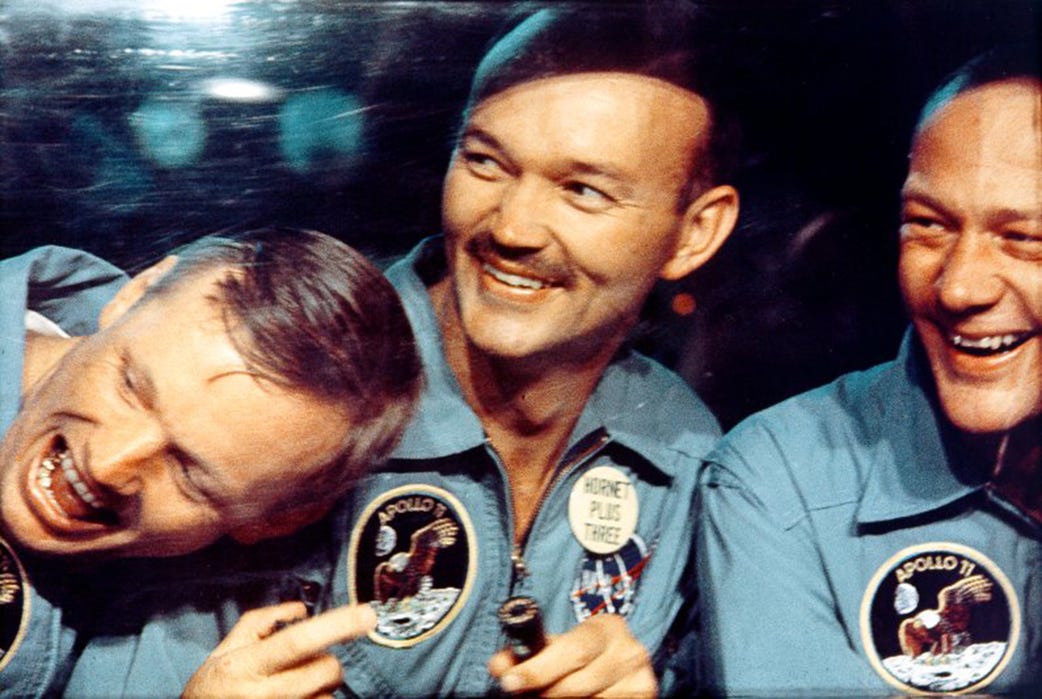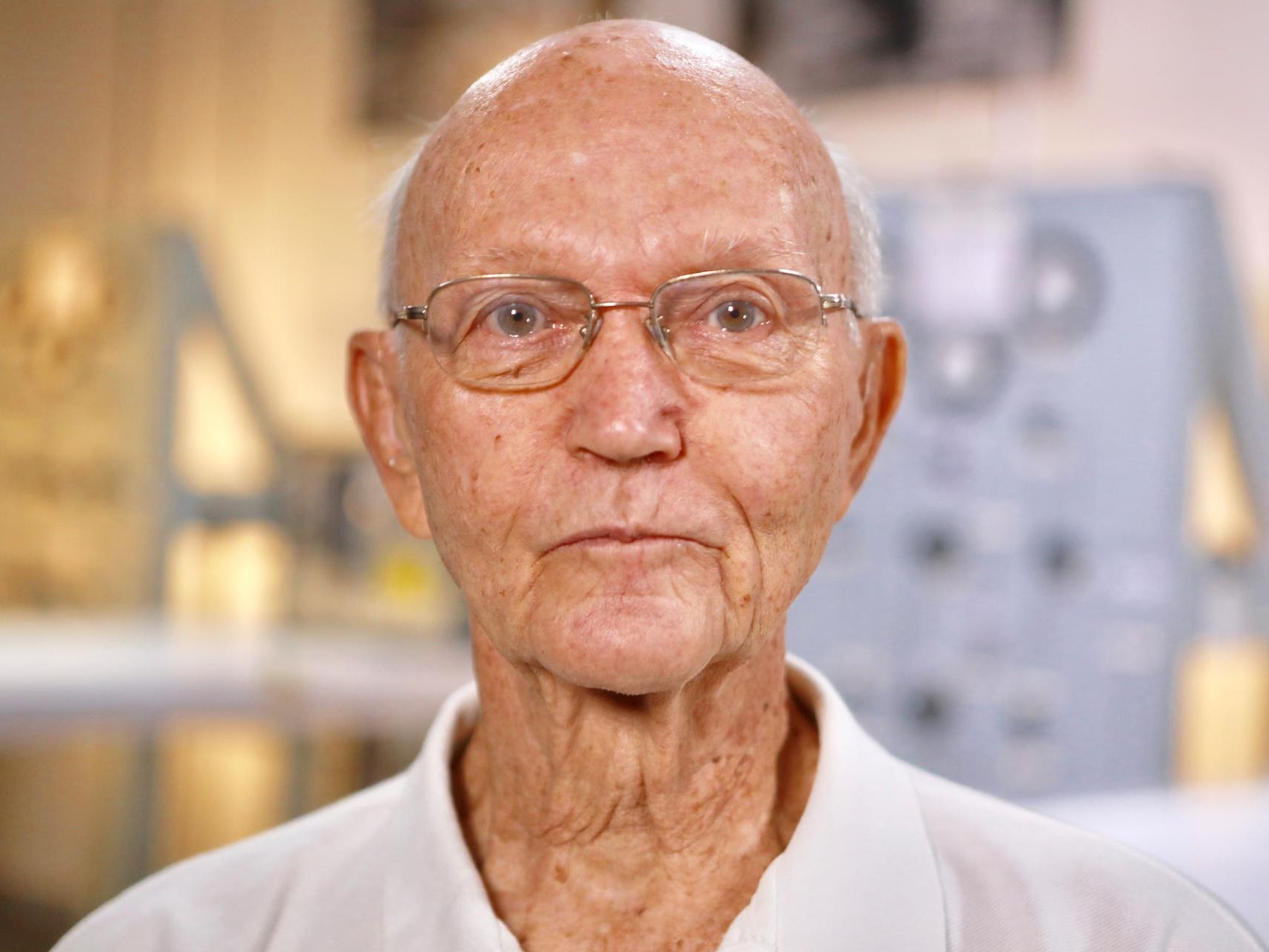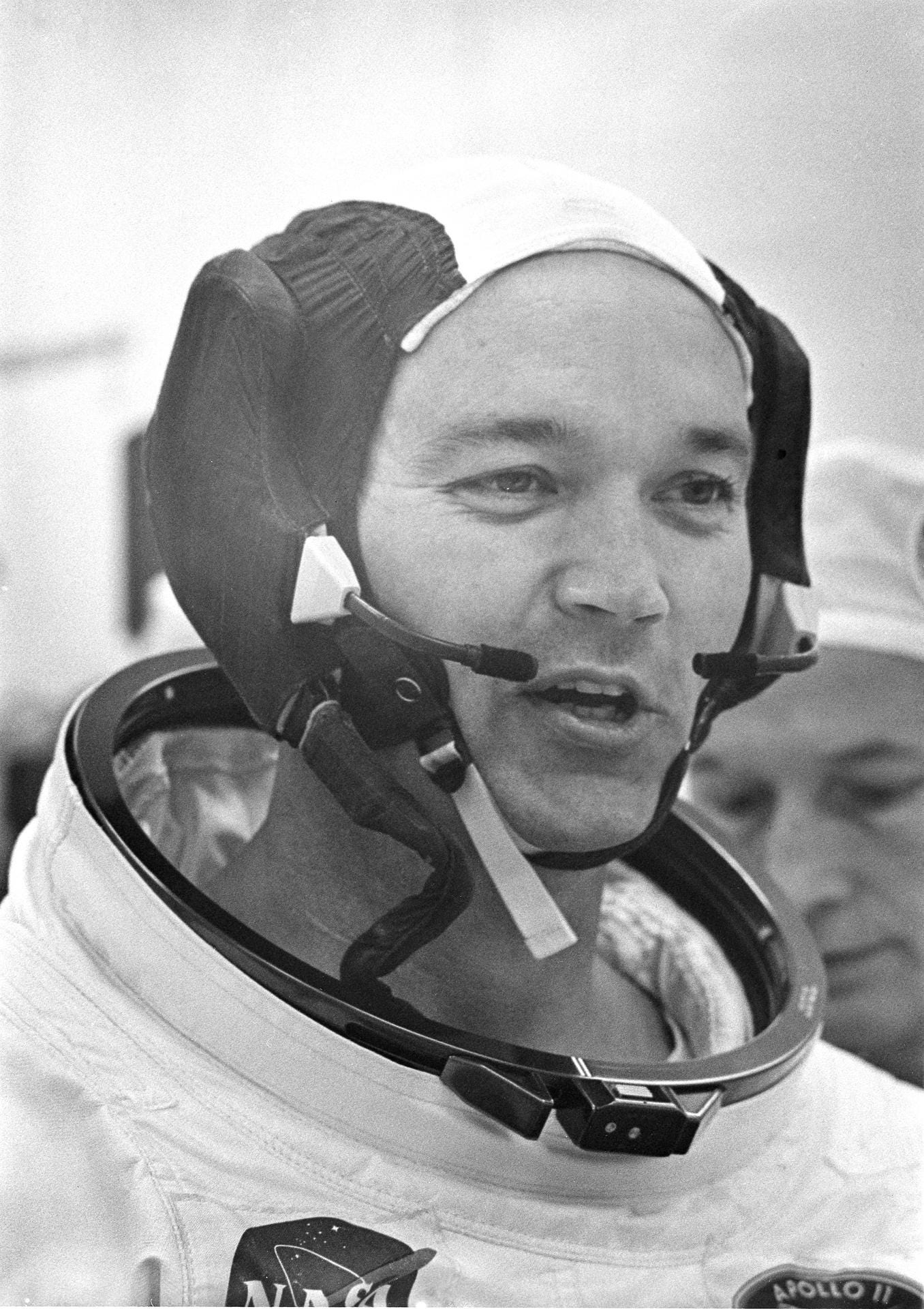
NASA
- NASA astronaut Michael Collins, who participated in the Apollo 11 moon-landing mission, has died at 90.
- Collins piloted the Command Module Columbia while Neil Armstrong and Buzz Aldrin walked on the moon.
- "The thing I remember most is the view of planet Earth from a great distance," Collins later said.
- See more stories on Insider's business page.
Astronaut Michael Collins, who played a critical role in the Apollo 11 moon-landing mission, has died at age 90.
Collins launched toward the moon with fellow astronauts Neil Armstrong and Buzz Aldrin in July 1969. While his crewmates became the first people to walk on the lunar surface, Collins piloted the Command Module Columbia that would carry the three of them back to Earth.
"I was the most lonesome person in the whole universe, at least according to the newspapers," Collins joked in a 2014 Apollo panel held by NASA. "Actually, I was so glad to get behind the moon so Mission Control would shut up."
The moon's mass would block communications when the spaceship passed behind it, which was when Collins said he "had some peace and quiet." During that time on the command module, he performed experiments and photographed the lunar surface.
"The thing I remember most is the view of planet Earth from a great distance," he later said, according to NPR. "Tiny. Very shiny. Blue and white. Bright. Beautiful. Serene and fragile."

NASA
Apollo 11 was Collins' second spaceflight. He also piloted the three-day Gemini X mission in 1966, in which he conducted two spacewalks to retrieve an experimental package orbiting Earth.
According to a statement from his family, Collins died of cancer on Wednesday, after spending "his final days peacefully, with his family by his side."
The statement continued: "Mike always faced the challenges of life with grace and humility, and faced this, his final challenge, in the same way. We will miss him terribly. Yet we also know how lucky Mike felt to have lived the life he did. We will honor his wish for us to celebrate, not mourn, that life. Please join us in fondly and joyfully remembering his sharp wit, his quiet sense of purpose, and his wise perspective, gained both from looking back at Earth from the vantage of space and gazing across calm water from the deck of his fishing boat."

NASA/Frank Michaux
Collins was born on October 31, 1930 in Rome, Italy, where his father was a major general for the US Army.
He graduated from the the US Military Academy in West Point, New York in 1952, then became an Air Force test pilot. NASA selected him to be an astronaut in 1963, in its third astronaut class.

NASA
He received the Presidential Medal for Freedom in 1969, as well as the NASA Exceptional Service Medal.
After Collins left NASA in 1970, he spent seven years as director of the National Air & Space Museum in Washington, DC, overseeing the construction and opening of the museum building.
"Today the nation lost a true pioneer and lifelong advocate for exploration in astronaut Michael Collins," acting NASA Administrator Steve Jurczyk said in a statement on Wednesday. "Michael remained a tireless promoter of space ... There is no doubt he inspired a new generation of scientists, engineers, test pilots, and astronauts."
In total, Collins spent 266 hours in space.
"Exploration is not a choice, really, it's an imperative," Collins once said, according to NASA. "What would be worth recording is what kind of civilization we Earthlings created and whether or not we ventured out into other parts of the galaxy."
